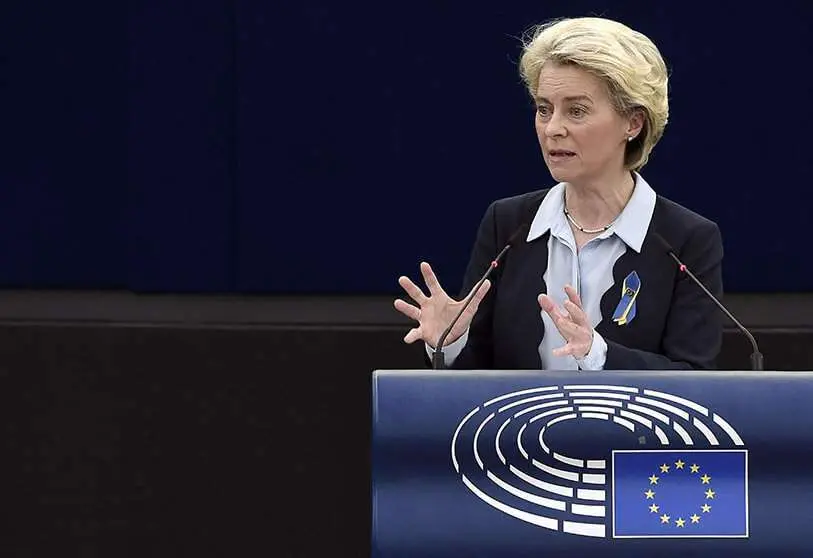EU prepares a fifth package of sanctions against Russia without including gas

The Bucha massacre has been a turning point in Russia's invasion of Ukraine. The horror conveyed by the survivors and the images, which threatens to be just the tip of the iceberg of crimes against humanity committed by Russia on Ukrainian soil, has once again galvanised a West that, in the absence of direct intervention in the conflict, is intensifying its financial war against a Kremlin with no real intention of stopping its aggression.
Forty-two days ago, Brussels and Washington coordinated their response to the start of the invasion to deliver a joint blow to the waterline of Vladimir Putin's regime. But calls between European Commission President Ursula von der Leyen and US Treasury Secretary Janet Yellen, which have been a constant, came to fruition thanks to the mediation of Italian Prime Minister Mario Draghi, a European political heavyweight.
The former heads of the Federal Reserve and the European Central Bank, both of whom are experienced in previous economic crises, agreed after intensive hours of diplomacy to weave a common response to Russian aggression. This retaliation took the form of economic sanctions that, since the beginning of the invasion, have become more severe as the Russian army has stepped up its attacks on civilians in Ukraine. In the wake of the Bucha massacre, the EU and the US are preparing new responses.

The permanent ambassadors of the member states met behind closed doors in Brussels on Wednesday to finalise the fifth and final package of economic sanctions against Russia, announced on Tuesday by Commission President Ursula von der Leyen. The aim of the meeting was to receive final approval from the EU-27 to implement the measures, which are expected to come into force within 24 hours, as soon as possible.
But there was no unanimity. In a new sign of division, the member states failed to reach the necessary consensus to move forward with the Commission's proposal, which once again puts the unity of the EU-27 at risk. The positions taken by the member states have not been made public, but everything points to Hungary, where the recently re-elected Viktor Orbán has dissociated himself from the EU, declaring that sanctions on Russian oil and gas are a "red line" for Budapest.
The Commission is not throwing in the towel and talks will continue on Thursday in a climate of some optimism. The announcement looks set to go ahead because there is still no proposal on the table to sanction Moscow's oil or gas, only coal. However, European Council President Charles Michel assumes that the next step will be to cut off gas supplies from Russia.

Until members give their approval and the official journal publishes the document, we only know the proposals outlined by the Commission President at a press conference. Among the measures outlined by Ursula von der Leyen on Tuesday was a ban on imports of coal from Russia, the first sanctions against Russia's energy sector.
Russian vessels will also not be allowed to enter European ports, as well as a complete ban on transactions by four major Russian banks "to further weaken Russia's financial system", including the country's second largest, VTB. Albeit with some exceptions for agricultural and food products, humanitarian aid and energy. An extensive list of sanctions is part of the package and will be announced in the coming hours.
"We have all seen the horrific images from Bucha and other areas from which Russian troops have recently left. These atrocities cannot and will not go unchallenged," she said. Von der Leyen also revealed that the EU is working on additional sanctions, and she hinted at the possibility of including gas and oil, which would have to be given the green light by the EU-27.
Americas Coordinator: José Antonio Sierra








